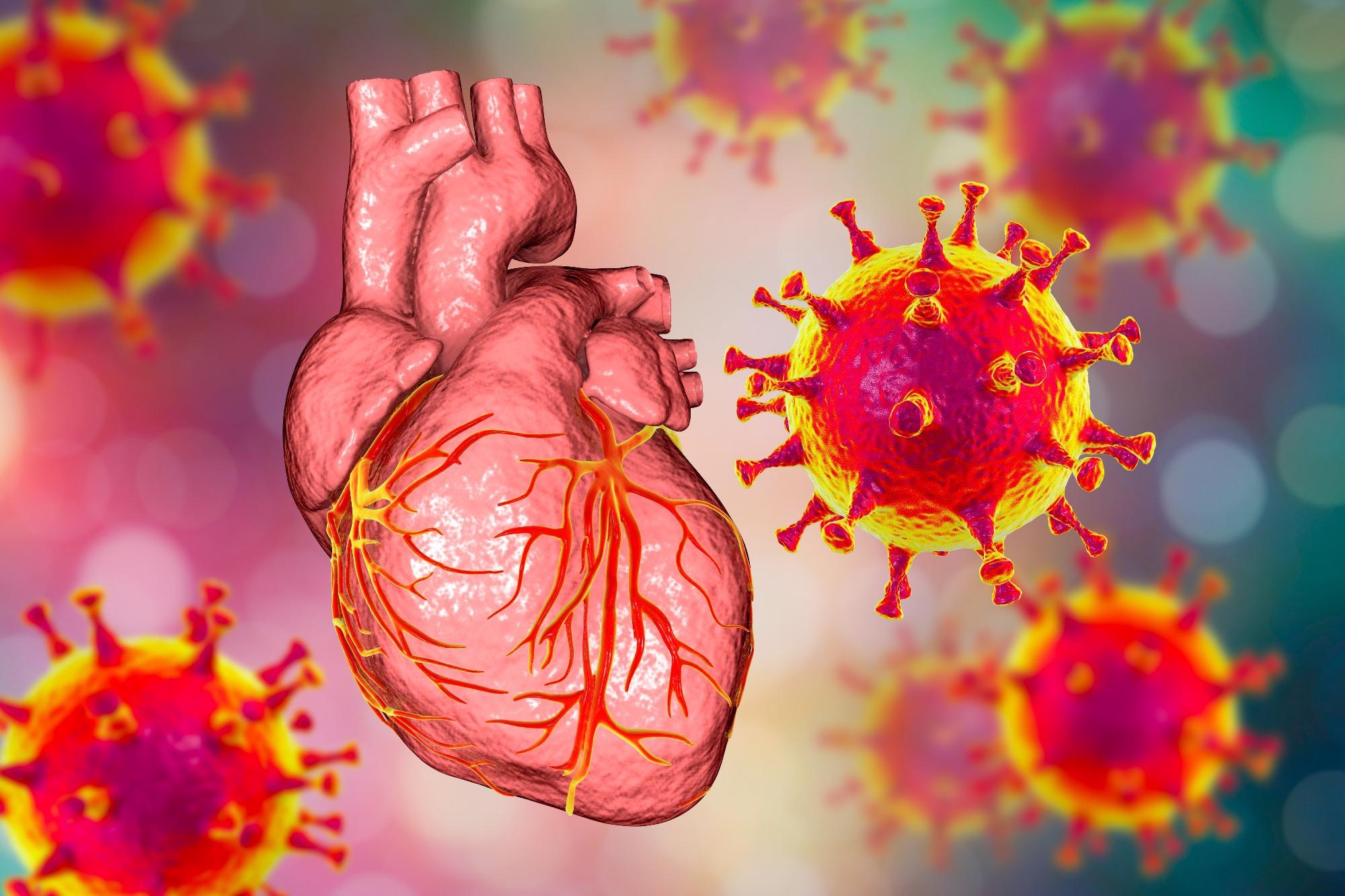A team of scientists from Iran has recently estimated the prevalence of coronavirus disease 2019 (COVID-19) in myocardial infarction patients receiving a primary percutaneous coronary intervention. A considerably high prevalence of COVID-19 has been observed among study participants. The study is currently available on the Research Square* Preprint Server.
 Study: Frequency of COVID-19 in patients with myocardial infarction treated with primary percutaneous coronary intervention. Image Credit: Kateryna Kon / Shutterstock
Study: Frequency of COVID-19 in patients with myocardial infarction treated with primary percutaneous coronary intervention. Image Credit: Kateryna Kon / Shutterstock

 *Important notice: Research Square publishes preliminary scientific reports that are not peer-reviewed and, therefore, should not be regarded as conclusive, guide clinical practice/health-related behavior, or treated as established information.
*Important notice: Research Square publishes preliminary scientific reports that are not peer-reviewed and, therefore, should not be regarded as conclusive, guide clinical practice/health-related behavior, or treated as established information.
Background
The COVID-19 pandemic caused by severe acute respiratory syndrome coronavirus 2 (SARS-CoV-2) has severely impacted the global healthcare system, with more than 461 million infections and over 6 million deaths globally. Although SARS-CoV-2 essentially causes respiratory infection, the virus has been found to infect a wide range of organs, including the gastrointestinal tract, heart, brain, liver, and kidney.
A high prevalence of cardiovascular diseases, including myocardial infarction, arrhythmia, acute coronary syndrome, and thromboembolism, has been observed in COVID-19 patients. In addition, in some COVID-19 patients, a higher prevalence of cardiac symptoms has been identified compared to common respiratory symptoms. Importantly, a significant association has been established between the presence of cardiac symptoms and increased COVID-19 related mortality.
Percutaneous coronary intervention, a medical procedure to reopen coronary artery blockages and restore blood supply to the heart, is considered the best intervention to treat myocardial infarction with ST-segment elevation. However, evidence indicates that the COVID-19 pandemic has negatively impacted the timely application of reperfusion therapy for myocardial infarction patients because of a significant reduction in cardiac catheterization laboratory activations.
In the current study, the scientists have estimated the prevalence of COVID-19 in myocardial infarction patients who have undergone primary percutaneous coronary intervention.
Study design
A total of 85 myocardial infarction patients were included in the study. All patients underwent primary percutaneous coronary intervention between March and September 2020. SARS-CoV-2 infection was detected by reverse transcription-polymerase chain reaction (RT-PCR) and lung CT scan. In addition, patients’ demographic characteristics (age, sex, and ethnicity) and comorbidities (diabetes and hypertension) were recorded at the time of admission.
Important observations
About 16.5% of the myocardial infarction patients (14 out of 85 patients) were diagnosed with COVID-19. No significant difference in age and gender was observed between patients with and without COVID-19. In both groups (patients with and without COVID-19), the proportion of male patients was higher than female patients.
The study population involved different ethnicities, including Persian, Turkmen, Sistani, and Turks. However, no significant variation in ethnicities was observed between myocardial infarction patients with and without COVID-19.
The presence of hypertension and diabetes was detected in 9% and 10% of myocardial infarction patients, respectively. However, no significant difference in the frequency of these comorbidities was observed between patients with and without COVID-19.
Characterization of myocardial infarction patients with COVID-19
All myocardial infarction patients with COVID-19 (n = 14) tested positive for troponin I (a protein found in the heart muscle). The presence of troponin I in blood indicates heart damage.
In 20% of the study population with COVID-19, a primary percutaneous coronary intervention was performed in the right coronary artery branch. The recurrence of myocardial infarction was observed in 14% of patients with COVID-19.
Only one patient died during the study period. The patient was a 70-year-old Persian woman with acute anterior myocardial infarction. She had both hypertension and diabetes. The primary percutaneous coronary intervention was performed on her left arterial descending coronary branch. However, the scientists could not confirm whether the death occurred due to myocardial infarction or COVID-19-related cardiovascular complications.
Study significance
The study reveals a considerably high prevalence (16.5%) of COVID-19 in myocardial infarction patients receiving primary percutaneous coronary intervention. Moreover, the study indicates that the presence of comorbidities, including hypertension and diabetes, may increase the risk of severe COVID-19 and related mortality in myocardial infarction patients.

 *Important notice: Research Square publishes preliminary scientific reports that are not peer-reviewed and, therefore, should not be regarded as conclusive, guide clinical practice/health-related behavior, or treated as established information.
*Important notice: Research Square publishes preliminary scientific reports that are not peer-reviewed and, therefore, should not be regarded as conclusive, guide clinical practice/health-related behavior, or treated as established information.